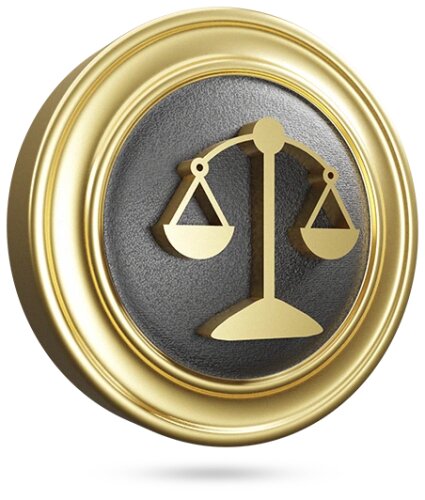Best Creditor Lawyers in Brazil
Share your needs with us, get contacted by law firms.
Free. Takes 2 min.
Or refine your search by selecting a city:
List of the best lawyers in Brazil
About Creditor Law in Brazil
In Brazil, creditor law primarily involves the rights and obligations of creditors and debtors, typically within the framework of civil and commercial law. The legal system is based on the Civil Law tradition, with structured regulations governing financial transactions and debt recovery processes. Creditors in Brazil often deal with the complexities of contract enforcement, bankruptcy proceedings, and negotiations for repayment. Brazilian law seeks to balance creditor rights with debtor protection to promote fair financial practices and economic stability.
Why You May Need a Lawyer
Individuals and businesses may require legal assistance in creditor-related matters for several reasons. If you are seeking to recover debts owed to you or your business, a lawyer can help navigate complex legal procedures and ensure compliance with local regulations. Additionally, if you are involved in contract disputes regarding payment terms or are facing bankruptcy proceedings, legal counsel can provide vital guidance and representation. Lawyers can also assist with negotiating repayment plans or restructuring debts, ultimately protecting your financial interests.
Local Laws Overview
Brazilian creditor law is influenced by several key legal frameworks, including the Civil Code, the Consumer Defense Code, and the Bankruptcy Law. The Civil Code establishes the general principles governing obligations and contracts, essential for understanding debtor-creditor relationships. The Consumer Defense Code provides specific regulations on consumer credit transactions, enhancing consumer rights and obligations. The Bankruptcy Law outlines the procedures for judicial and extrajudicial recovery, offering mechanisms for financially distressed entities to reorganize their debts while protecting creditor rights.
Frequently Asked Questions
What is the process for recovering a debt in Brazil?
The debt recovery process in Brazil typically involves issuing a formal demand for payment, negotiating settlements, and, if necessary, initiating legal proceedings through the courts. Legal assistance can ensure procedural accuracy and compliance.
Can interest rates on debts be negotiated in Brazil?
Yes, interest rates can often be negotiated between parties, especially if there are disputes regarding payment terms. However, they must comply with the legal limits stipulated in Brazilian law to prevent excessive charges.
What options do creditors have if a debtor declares bankruptcy?
Creditors can file claims during bankruptcy proceedings and participate in the restructuring process. The Brazilian bankruptcy law provides mechanisms for creditors to recover debts, subject to the priority of claims system.
Are there specific protections for consumer debtors in Brazil?
Yes, consumer debtors are protected under the Consumer Defense Code, which ensures fair practices in credit agreements and prohibits abusive contractual terms. This code aims to balance the creditor's and debtor's rights effectively.
How long does a typical debt recovery lawsuit take in Brazil?
The duration of a debt recovery lawsuit can vary significantly depending on the complexity of the case, the court's workload, and the parties involved. It may range from a few months to several years in more complex scenarios.
What constitutes an enforceable credit contract in Brazil?
An enforceable credit contract must meet specific legal requirements, including clear terms of agreement, mutual consent, and legality. Contracts should be in writing and duly signed to be valid and enforceable.
What is the role of a trustee in bankruptcy cases in Brazil?
A trustee, or judicial administrator, supervises the management of a bankrupt company's assets, ensuring compliance with legal procedures, managing creditor meetings, and overseeing the debt restructuring or liquidation process.
Can a creditor seize debtor assets in Brazil?
Creditors may seek court orders to seize assets if a debtor defaults on payment. Asset seizure is part of the legal enforcement actions available to creditors, subject to court approval.
Is mediation or arbitration available for creditor disputes in Brazil?
Yes, mediation and arbitration are available alternative dispute resolution methods that can be effective in settling creditor disputes amicably without lengthy court proceedings.
How can a foreign creditor enforce a debt in Brazil?
Foreign creditors must navigate Brazilian legal systems, often requiring the recognition of foreign judgments by Brazilian courts. Engaging a local lawyer with expertise in international creditor law is recommended.
Additional Resources
For more information and support related to creditor issues, consider reaching out to the Brazilian Bar Association (Ordem dos Advogados do Brasil - OAB) for lawyer recommendations. The Conselho Nacional de Justiça (CNJ) provides guidance on judicial procedures, and consumer protection agencies can assist with consumer credit disputes. Additionally, businesses might consult trade associations for industry-specific advice.
Next Steps
If you need legal assistance regarding creditor matters in Brazil, start by consulting a lawyer who specializes in creditors' rights and obligations. Gather all relevant documents and information related to your case to facilitate the legal process. You can also explore alternative dispute resolution methods like mediation or arbitration if applicable. Ensure to act promptly, respecting any applicable legal deadlines or statutes of limitation.
Lawzana helps you find the best lawyers and law firms in Brazil through a curated and pre-screened list of qualified legal professionals. Our platform offers rankings and detailed profiles of attorneys and law firms, allowing you to compare based on practice areas, including Creditor, experience, and client feedback.
Each profile includes a description of the firm's areas of practice, client reviews, team members and partners, year of establishment, spoken languages, office locations, contact information, social media presence, and any published articles or resources. Most firms on our platform speak English and are experienced in both local and international legal matters.
Get a quote from top-rated law firms in Brazil — quickly, securely, and without unnecessary hassle.
Disclaimer:
The information provided on this page is for general informational purposes only and does not constitute legal advice. While we strive to ensure the accuracy and relevance of the content, legal information may change over time, and interpretations of the law can vary. You should always consult with a qualified legal professional for advice specific to your situation.
We disclaim all liability for actions taken or not taken based on the content of this page. If you believe any information is incorrect or outdated, please contact us, and we will review and update it where appropriate.
Browse creditor law firms by city in Brazil
Refine your search by selecting a city.













